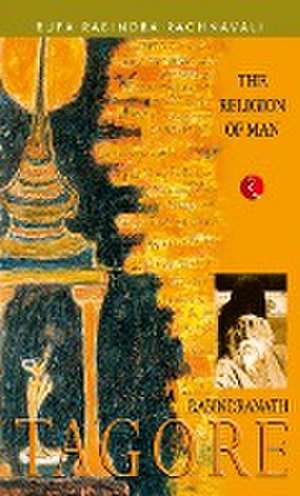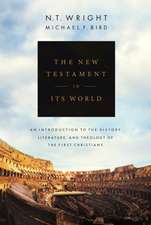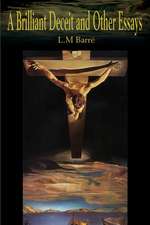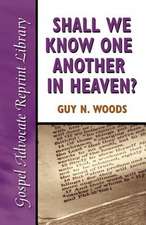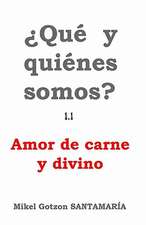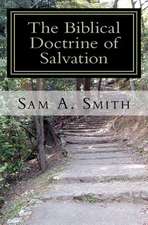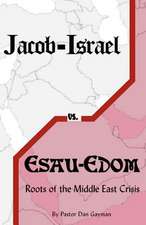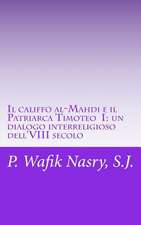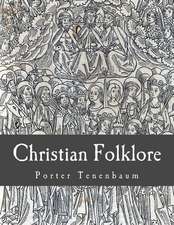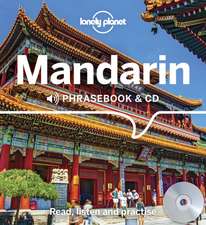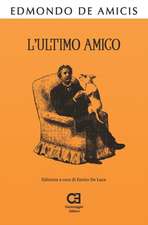The Religion of Man
Autor Rabindranath Tagoreen Limba Engleză Paperback – 31 dec 2004
| Toate formatele și edițiile | Preț | Express |
|---|---|---|
| Paperback (4) | 39.73 lei 22-36 zile | +7.50 lei 5-11 zile |
| Rupa Publications India Pvt Ltd. – 31 dec 2004 | 39.73 lei 22-36 zile | +7.50 lei 5-11 zile |
| Monkfish Book Publishing – 15 feb 2022 | 94.95 lei 22-36 zile | |
| BOOK TREE – 18 sep 2018 | 102.88 lei 22-36 zile | |
| Merchant Books – 12 oct 2015 | 82.97 lei 43-57 zile |
Preț: 39.73 lei
Nou
Puncte Express: 60
Preț estimativ în valută:
7.60€ • 7.91$ • 6.28£
7.60€ • 7.91$ • 6.28£
Carte disponibilă
Livrare economică 24 martie-07 aprilie
Livrare express 07-13 martie pentru 17.49 lei
Preluare comenzi: 021 569.72.76
Specificații
ISBN-13: 9788171676286
ISBN-10: 8171676286
Pagini: 240
Dimensiuni: 108 x 178 x 15 mm
Greutate: 0.2 kg
Editura: Rupa Publications India Pvt Ltd.
ISBN-10: 8171676286
Pagini: 240
Dimensiuni: 108 x 178 x 15 mm
Greutate: 0.2 kg
Editura: Rupa Publications India Pvt Ltd.
Descriere
Descriere de la o altă ediție sau format:
The Religion of Man (1931) is a compilation of lectures by Rabindranath Tagore, edited by Tagore and drawn largely from his Hibbert Lectures given at Oxford University in May 1930. A Brahmo playwright and poet of global renown, Tagore deals with the universal themes of God, divine experience, illumination, and spirituality. A brief conversation between him and Albert Einstein, "Note on the Nature of Reality", is included as an appendix.
Notă biografică
Rabindranath Tagore (1861¿1941) was the youngest son of Debendranath Tagore, a leader of the Brahmo Samaj, which was a new religious sect in nineteenth-century Bengal and which attempted a revival of the ultimate monistic basis of Hinduism as laid down in the Upanishads. He was educated at home; and although at seventeen he was sent to England for formal schooling, he did not finish his studies there. In his mature years, in addition to his many-sided literary activities, he managed the family estates, a project which brought him into close touch with common humanity and increased his interest in social reforms. He also started an experimental school at Shantiniketan where he tried his Upanishadic ideals of education. From time to time he participated in the Indian nationalist movement, though in his own non-sentimental and visionary way; and Gandhi, the political father of modern India, was his devoted friend. Tagore was knighted by the ruling British Government in 1915, but within a few years he resigned the honour as a protest against British policies in India. Tagore had early success as a writer in his native Bengal. With his translations of some of his poems he became rapidly known in the West. In fact his fame attained a luminous height, taking him across continents on lecture tours and tours of friendship. For the world he became the voice of India's spiritual heritage; and for India, especially for Bengal, he became a great living institution.
This autobiography/biography was written at the time of the award and later published in the book series Les Prix Nobel/Nobel Lectures.
This autobiography/biography was written at the time of the award and later published in the book series Les Prix Nobel/Nobel Lectures.
